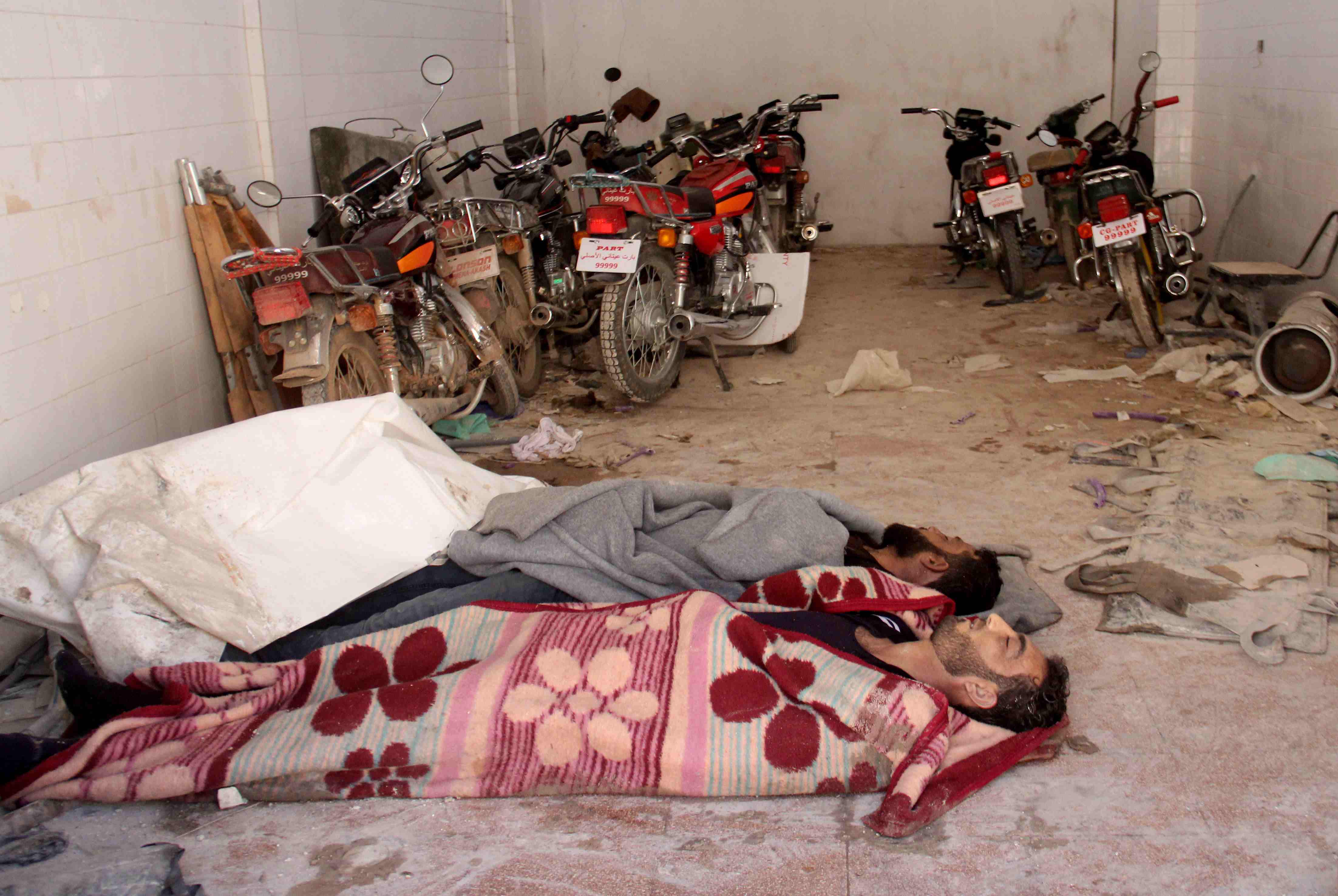The death toll from Tuesday's alleged chemical weapons attack in northwestern Syria's Idlib has risen to 72, including 20 children, the Syrian Observatory for Human Rights said on Wednesday.
"There were also 17 women among the dead and the death toll could rise further because there are people missing," said the monitoring group.
Warplanes targeted rebel-held Khan Sheikhoun with gases believed to be sarin and chlorine at 6:30 a.m. local time on Tuesday, reported Reuters, citing Mounzer Khalil, head of Idlib's
health authorities.
The Russian defense ministry denied that Russian planes had carried out airstrikes on Idlib. The ministry said on Wednesday that the gas contamination was caused by gas leaking from a chemical weapons depot after it was hit by a Syrian government airstrike, according to Reuters.
The Syrian Observatory said the attack caused many people to choke or faint, and some had foam coming out of their mouths.
The UN Security Council is to hold emergency talks in the wake of the incident, which has provoked international condemnation.

A Syrian man receives treatment following a suspected toxic gas attack in Khan Sheikhun on April 4, 2017. /AFP Photo
Hours after the suspected chemical attack, aircraft fired rockets at local clinics treating some of the survivors in the same Syrian town, according to opposition activists.
The government hasn’t made any official comment about the attack.
However, a Syrian military source told CCTV that the government was not responsible for a military toxic attack, saying there was no need for the government army to use such weapons in Idlib.
The state's chemical weapons were destroyed by the end of 2013 under the supervision of the Organization for the Prohibition of Chemical Weapons (OPCW), added the source.
If the “chemical attack” is confirmed, it would mark the deadliest chemical attack in Syria since sarin gas killed hundreds of civilians in Ghouta near Damascus in August 2013.

Bodies lie in the parking area of a hospital following a suspected toxic gas attack in Khan Sheikhun on April 4, 2017. /AFP Photo
Reaction
Turkish President Recep Tayyip Erdogan and Russian President Vladimir Putin have discussed the suspected attack, reported Reuters citing Turkish presidential sources.
The two leaders both emphasized the importance of maintaining the ceasefire, according to the report.
The US government strongly condemned the attack in Idlib, calling for "a genuine ceasefire" in the region, according to a statement by Secretary of State Rex Tillerson.
The OPCW is seriously concerned about the alleged chemical weapons attack, with its Fact Finding Mission (FFM) in the process of gathering and analyzing information from all available sources.
6803km










